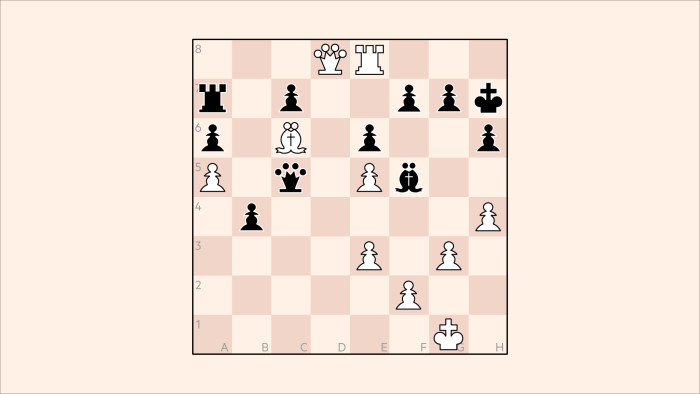Chess: Carlsen wins seven mini-matches straight in online Tour final

Magnus Carlsen, who has resigned his world championship title but remains world No1, followed up his decision not to defend his over-the-board crown against Ian Nepomniachtchi by dominating last week’s $210,000 online Meltwater Tour final in San Francisco, where he won all his seven mini-matches. Asked if his previous decision had motivated him to prove in every tournament that he was still the best player, he answered simply “Yep”.
Carlsen’s masterful all-round game was too much for his highly rated opponents. He is strong not only in converting advantages, but resilient and resourceful when the position goes against him, and willing to grind on for many moves with tiny endgame advantages.
His win with Black against Anish Giri of the Netherlands showed the No1’s technique at its best, as well as his constant search for improvement. Giri met the Sicilian 1 e4 c5 2 Nf3 Nc6 3 Bb5, a move which caused Carlsen difficulty in his 2018 world title match against Fabiano Caruana. Then he replied with 3...g6, but he has since changed to 3...e6 with improved results.
The Giri game even provided a free lesson to this writer, as in occasional internet games on Lichess. I also use 3...e6 and had previously had problems with White’s 5 Re1 and 6 Bf1 plan. Next time I’ll know better.
If internet games were officially rated by the global chess body Fide, Carlsen’s 7/7 match score last week would rank above or close to the 2900 rating he has set himself for over-the-board chess. Discounting tie-breaks, he won 14 games, drew nine, and had a solitary loss to Vietnam’s Lê Quang Liêm.
The problem is that online games are not Fide-rated, and in any case the fast time limit in San Francisco of 15 minutes per player per game plus a two seconds per move increment would not qualify for a slow classical rating.
In contrast to his overwhelming superiority in online tournaments, Carlsen’s over-the-board rating topped out in August 2019, when it reached a peak of 2882, exactly equal to a previous peak in 2014. Since then, his performances have been on a plateau, albeit a very exalted one.
Realistically, his only way to achieve a new over-the-board peak will be if, at some future time, Fide decides that it needs Carlsen for a credible world championship. The Norwegian’s wish is that title matches should include some extra faster time-limit games in addition to the existing provision for speed tie-breaks in the event of a level final score.
Due to Carlsen’s withdrawal, the next world championship match in summer 2023 will be between Nepomniachtchi (who now plays under a Fide flag due to sanctions barring Russian players) and China’s Ding Liren. Whether they play half the match in Beijing and half in Moscow, or on neutral ground in Uzbekistan or Kazakhstan, the series will have diminished interest for global chess fans who want to watch the charismatic Carlsen.
Puzzle 2496
David Howell v Das Debashis, Doha 2016. White to move and win. The three-time British champion and Olympiad gold medallist scores in style.
Click here for solution
Comments